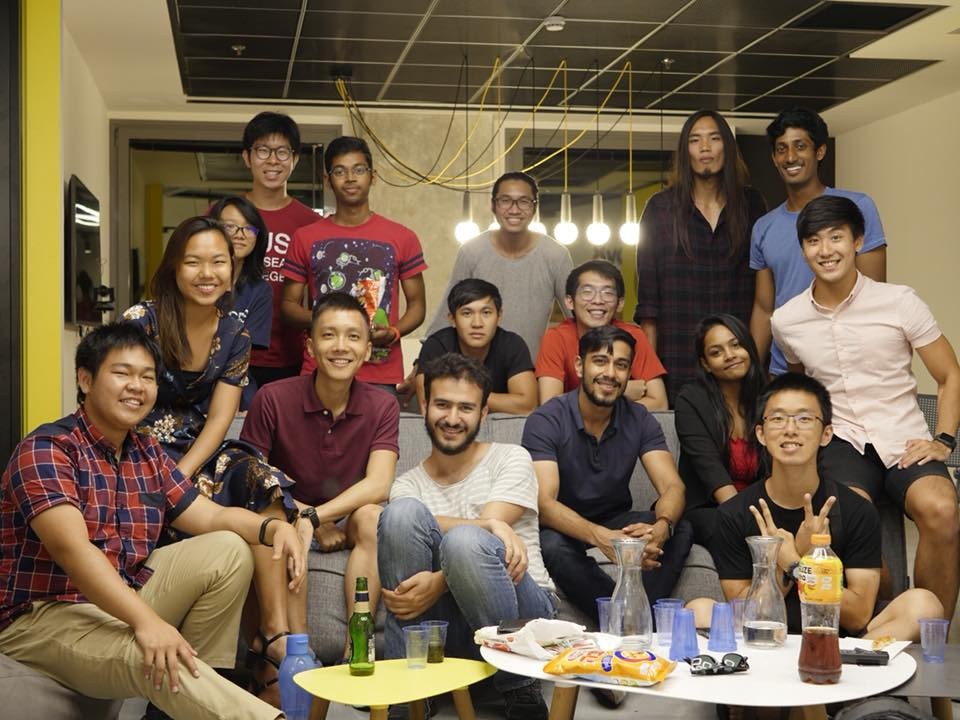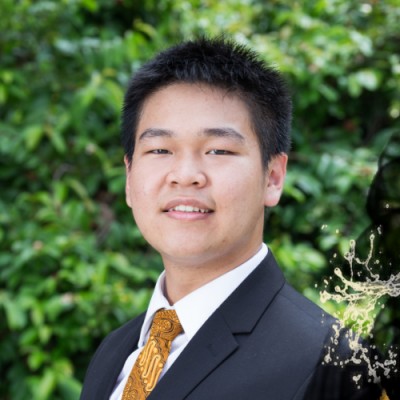
How to Leverage Your Choices, Whether Intuitive or Intentional
This is based on my reflection on the past four years as an undergraduate in NUS Business School. Whether you are someone who already has what you want in mind or you are as open as I was, something here might resonate with you.
Porter in his '96 HBR article "What is Strategy" argues that strategic positioning (generically known as cost leadership, differentiation, or focus) is achieved through two broad sets of choices:
1. Which activities a company will perform, and
2. How those activities relate to one another
Similarly, our position in life is shaped by the choices that we make and how they correlate with each other – or at least how well we connect the dots. I figured that how we make choices can be broadly categorised to either an intuitive or intentional approach (or a combination between the two for that matter although that won't be discussed in this article). And in turn, how we develop either of the two approaches at any stage of life is largely determined by whether we know what we want or where we should be.
Many people argue that we should first decide what we want to achieve in life and carve our own path accordingly. I think that is definitely one legitimate and proven way one can approach it and I would call that the intentional approach. However, that was not how I approached my choices in the university and perhaps also not for everyone. I did not exactly know what I wanted at the start although I believe I still ended up having some degree of clarity and intentionality about where I should be. Upon reflection, I think I approached my choices intuitively instead.
Regardless of your current preferred/default approach, I believe there are ways you can leverage that to strategically position yourself in life – this is related to our ability to join the dots and tell a story out of it.
I will divide this article into three parts. First, I will be explaining the intuitive approach by illustrating it through my own journey in NUS. I will then share some thoughts for those of you who do not know what you want in life at this point and those of you who do, respectively, how to leverage your preferred approach.
A. The Intuitive Approach – how I discovered where I should be through the choices that I made
In general, universities offer vast suite of resources/opportunities (modules, CCAs, housing, projects, internships) that one can choose from to curate their own path and experience. Choosing which university and major is just a start.
Many people enter business schools already having some kind of idea/ambition of where they want to be eventually, then they work backwards. For instance, if you want to go into banking, you will most likely take the Finance specialisation, do relevant internships with banks, keep up to date with market news, and so on. For consulting, you take part in case competitions, join relevant clubs or CCAs, aim for those internships. We get the idea.
Today, when I take people through my resume, 'about me', or where I see myself going, their typical comments include "you know exactly what you want" and "you are goal-focused". The truth is, I did not know what I wanted. When I was presented with the different opportunities in NUS, I built my profile one choice at a time driven by the excitement/curiosity for the individual choices without a clear picture of how they will fit together eventually.
Here are some of the major choices that I made, in chronological order:
Specialising in Management & Human Capital in Year 1 because I enjoyed my first MNO class as well as to fulfill the requirements for an award
Enrolling in BIZAD Leadership Development Programme (2017 intake) primarily for the community, tri-university Innovation & Entrepreneurship summer exchange with Tsinghua and Indian School of Business, as well as access to mentors and other personal development opportunities
Applying for and embarking on NUS Overseas Colleges (Israel) in Year 2–Year 3 which also kick-started my first few invaluable internships with JDCG, AKÏN, and eventually Singtel Innov8 (Corporate VC, Israel office). It was a once-in-a-lifetime immersion in the beautiful startup-nation-cum-holy-land
Doing a Fall internship with Arthur D. Little (management consulting) in Year 4
Other relevant modules of interest along the way such as Sustainability (Porter's creating shared value was a concept that drew me into MNO in the first place; this also led to CDL-GCNS Young SDG Leaders Award), Corporate Entrepreneurship, various Strategy/Management classes and independent papers, etc.
Only when I looked back at my above choices and experiences did some keywords begin to emerge: Strategy, Innovation & Entrepreneurship, Management, Sustainability. In addition, I also discovered my strengths as a conceptual thinker complemented with analytical skills, knack for facilitation/leadership in my areas of expertise, general interest in people (personality, motivation, leadership, etc.) and so on.
Granted, the above are still pretty broad and will need further sharpening moving forward. Some will ideally define my roles while some can be a criteria to choose an industry (tech, consulting) or company (e.g. I want to work for companies that have a 'heart' or sustainability practices in place and take part in some of their initiatives). Thankfully, I found a company that is aligned with the above expectations.
B. Leveraging the Intuitive Approach – if you do not know exactly what you want to do or where you should be in life
The above is an example of how I saw a pattern and connect the dots in my seemingly unrelated choices throughout my undergraduate life and used it to position myself professionally. Some of you might be in a similar position to where I was when I started out (and perhaps where I will be when I start my career). It is okay to not know exactly what you want, to be in a so-called 'exploration mode' and approaching life one choice at a time. You might eventually arrive at a point where things are taking a more concrete shape. A few tips while you are in the process:
1. Take stock of your strengths and interests and be on the lookout for opportunities that resonate with you. Don't choose something just because everyone else is or a path is considered more 'prestigious'
2. Do wholeheartedly whatever you have set your mind on doing. Be disciplined to put in effort and pick up the necessary skills for each endeavour
3. Take time to reflect on your experiences and discover your pattern so that you can effectively position yourself
4. Once you have discovered that 'sweet spot' of yours, pursue it intentionally
Point 4 is shaped by a powerful quote that I found recently that goes like this:
As a side note, if you know your MBTI profile, chances are you are either an intuitive-feeler type "xNFx" or more prospecting "xxxP" if you approach life like the above. At some point it is important that we translate the discovery process (which is so intuitive to us) into intentional pursuit to get to where we ought to be.
C. Leveraging the Intentional Approach – if you have some idea of or know exactly what you want to do in life
Good for you! Just remember to strategically choose the 'right' opportunities and examine how the different activities 'work together' to your desired end. That said, be open/flexible to changes and unexpected outcomes (e.g. what you want to choose is not available to you despite your best efforts). Life does not always turn out the way we want it to (if 2020 has taught us anything) and there are so many uncontrollable variables in life.
When that happens, some aspects of the discovery (perhaps in looking for alternatives), reflection, and pattern-finding above might be useful for you to process things that 'happen to you' as opposed to the usual things that 'you make happen'.
I believe some of the above might also be helpful if you are considering a career change or some kind of pivot in life. It might call for reflection and discovering another set of less obvious pattern that will best serve your case in the new scenario.
Final Thoughts and a Note of Gratitude
I believe that regardless of whichever approach to choices we have and how we can strategically leverage on them to get to where we want to be, there is one thing that we can always be intentional about wherever we are. I am referring to something beyond just meeting our personal or organizational objectives, performing well and getting 'ahead' in life as important as they maybe to some of us.
I propose that we should be intentional about making a positive difference in the lives of those whose paths we intersect with and those within the reach of our influence. I believe that where we are in life (socially, financially and the opportunities they present) is but a vehicle that enables us to add value to the world and not to be pursued as an ultimate end for ourselves.
In closing, I am thankful for the opportunities that NUS has presented me. Beyond the above self-discovery, internship/career openings, and the knowledge/skills/tools that I picked up, it was not until my time in NUS that I had the chance to venture outside Southeast Asia – it was my gateway to places such as Hong Kong, China, India, Israel and UK.
I am also deeply thankful for the many professors that I interacted with and learnt from along the way. Many of them expanded my perspectives; they taught me how to think more than just feeding me with information or a set of correct answers. I also formed precious and lasting friendships through my classes, BLDP, VCF, NUANSA, NOC, internships, etc. Let's stay connected and may our paths intersect again someday.

